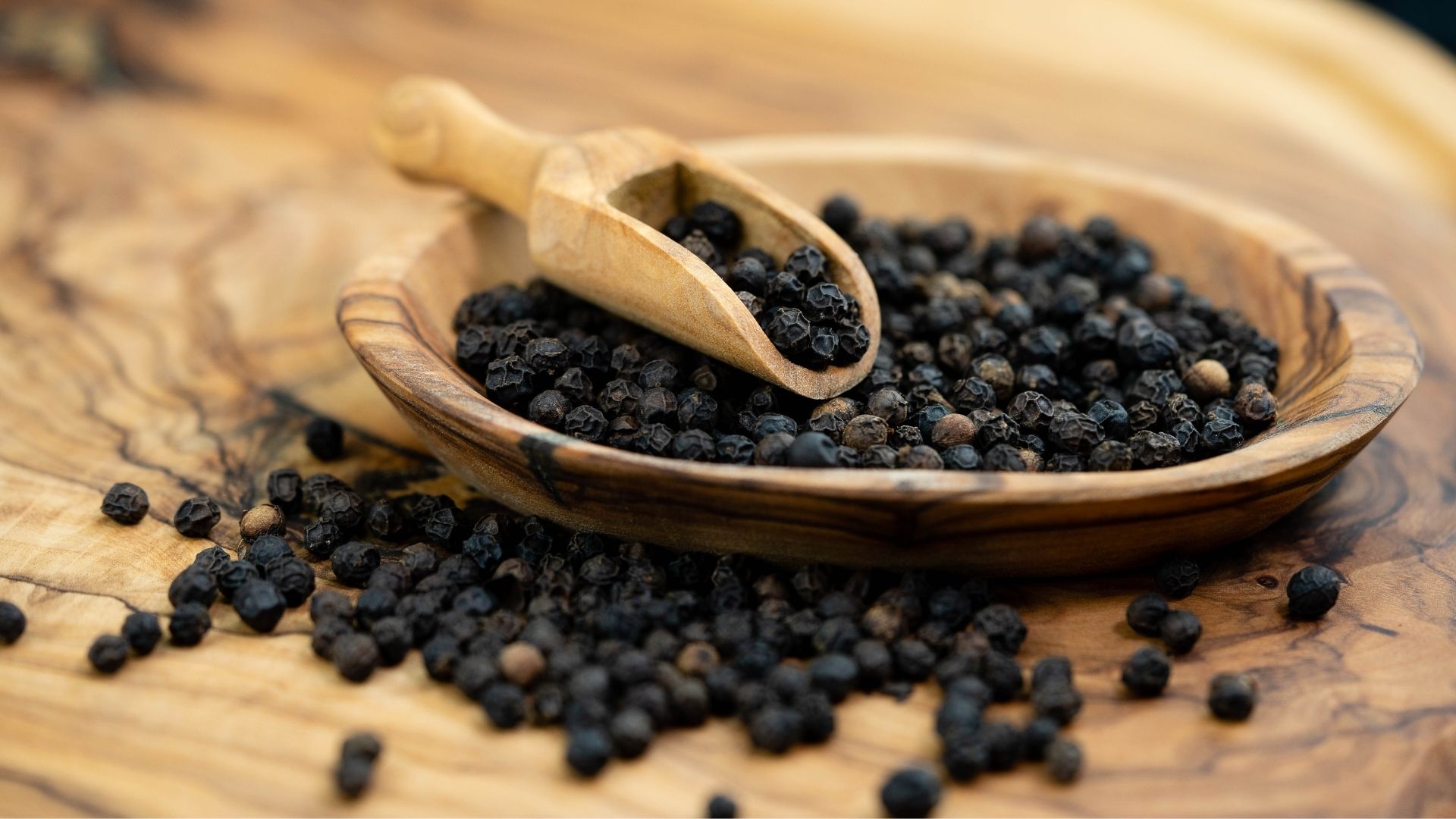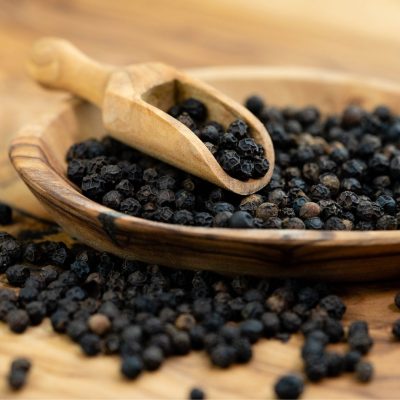At Gaston AI, we explore the science of food and its impact on your body—down to the molecule. One ingredient that often flies under the radar but delivers extraordinary health benefits is black pepper. More than just a kitchen staple, black pepper is a phytonutrient-rich spice with powerful biological effects.
But what really happens when you eat it every single day?
Phytonutrients in Black Pepper
Black pepper (Piper nigrum) is known for its sharp taste and pungent aroma. It’s packed with a bioactive compound called piperine, along with terpenes like caryophyllene, limonene, and pinene, which contribute to both flavour and health benefits.
Evidence indicates that black pepper, including its active ingredient piperine, shows enhanced potential to improve blood lipid profiles, including reducing circulating levels of low-density lipoprotein cholesterol (LDL) while increasing those of high-density lipoprotein (HDL). The strong antioxidant properties of black pepper are attributed to its potential beneficial effects on overweight and obese individuals.

Natural Powerhouse
Good for Guts, Metabolics and Liver Health
The piperine in black pepper helps neutralise harmful free radicals which further reduces oxidative stress biomarkers and pro-inflammatory cytokines.
Dubbed as a “bioenhancer”, piperine significantly increases the absorption of vitamins, minerals, curcumin, resveratrol and more!
For instance, it raises curcumin bioavailability by over 2000% and enhances absorption of beta-carotene, vitamins A, B6, C, D, E and minerals like iron and selenium.
Piperine stimulates digestive enzyme production and increases gastric acid secretion, improving digestion and nutrient uptake.
It can also accelerate gastric emptying, preventing bloating and comfort issues.
In a study combining 5mg piperine with curcumin, participants saw reduced fasting glucose, HbA1c and triglycerides after 120 days. Piperine further found to be responsible for metabolic syndrome risk by improving lipid profiles – particularly – rising HDL and lovering LDL.
Piperine is believed to enhance thermogenesis, suppress adipogenesis and help regulate leptin and ghrelin – essentially your hunger hormones.
Human research indicates potential – when paired with broader lifestyle changes – for boosting metabolism and reducing hunger.
Is it Safe to Eat Black Pepper Every Day?
Yes – when used in typical culinary amounts (1/4 to 1 tsp/day).
High supplement doses (5 – 20mg piperine daily) may interact with medications (via CYP3A4 inhibition), so consultation is advised especially individuals with GERD or gastric ulcers who may experience discomfort.
Needless-to-say, always consult your healthcare provider if you’re on medication.
Tips for Daily Use to Maximum Benefits
Adding black pepper to your daily diet is a simple, science-backed step toward better health. Its phytonutrients like piperine enhance digestion, boost nutrient absorption, regulate blood sugar, and even support brain and liver health.
At Gaston AI, we integrate this kind of nutritional insight into our personalised food-as-medicine recommendations, helping you make smarter everyday food choices for metabolic health.





